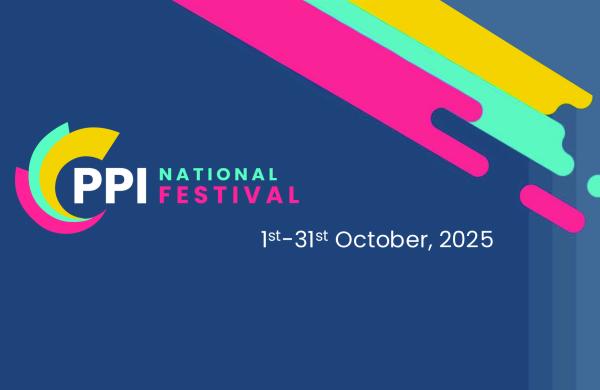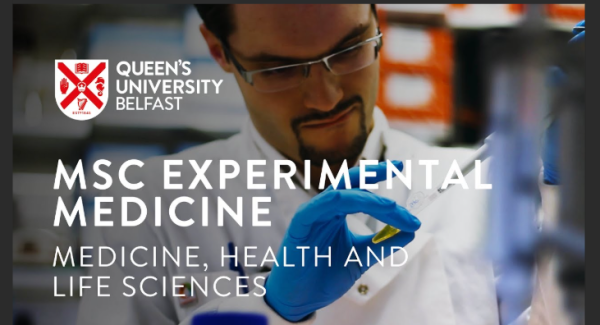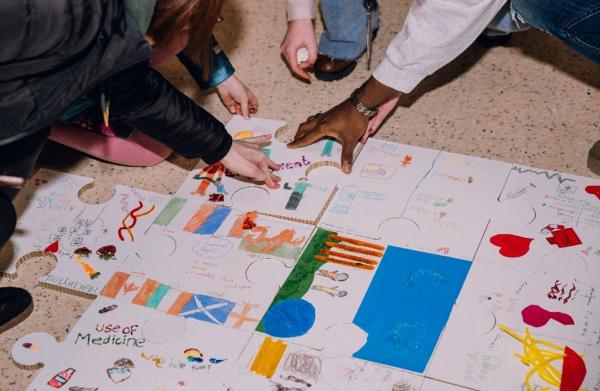QUB’s Personal and Public Involvement (PPI) Network is committed to sharing best practice in the establishment of PPI partnerships. We approached the Cardiac Research Group (CRG), a PPI group within the School of Nursing and Midwifery at QUB, to request that they share some of their experiences of working in PPI with our Network members.
What does the CRG do?
The CRG was established in 2021 and currently includes 30 PPI contributors and 13 QUB staff members with clinical and research expertise across a wide spectrum of cardiac conditions, from diagnosis to end of life stages. The purpose of the CRG is to establish a strong pool of patients, caregivers, clinicians, and researchers who work together to develop and enhance research that improves treatment, outcomes, and experience for patients with cardiac conditions and their informal caregivers. The integration of knowledge and experience across our members enables us to effectively identify and discuss research priorities; inform study protocol and grant applications; provide steering group membership / co-authorship opportunities; and guide and support dissemination, so our research can have more impact for service users. In recognition of their valued input, we provide our PPI members with signposting to appropriate support and education, opportunities to participate in new studies, and information on the results of our cardiac research, which keeps them up to date on evidence-based recommendations for relevant cardiac conditions.
Recently, PPI contributors from the CRG have drawn on their patient experience to expertly guide and shape the following projects at QUB:
A British Heart Foundation project grant application for the EPICC Study - Evaluating the Prevalence and Impact of Cardiac Cachexia in patients with advanced heart failure: a case-control, multi-centre study.The design of a leaflet for patients following a STEMI (type of heart attack) in the CABIN study – CArdiac Brief INtervention. Planning a research dissemination event in acknowledgement of World Heart Day 2023.
Impact of QUB funding
The majority of the CRG PPI contributors are patient representatives from England who were recruited via the British Heart Foundation. This is a problem as both national and local perspectives are required for balanced representations of patient experience across the nation. To address this issue, we secured seed funding in 2021 from the QUB PPI Network Seed Fund to increase local (Northern Ireland) patient representation in the CRG. From 2021 – 2022, we used the funding to create information packs that were sent to our nursing colleagues in Coronary Care and Cardiac Rehabilitation units across Northern Ireland (see image below). Due to ongoing COVID-19 restrictions at the time, we did not visit clinical areas, but instead, requested for our clinical colleagues to distribute the information packs to patients. We also distributed the packs at a PhD dissemination event attended by patients, staff, and research collaborators in 2022. In total, 140 stress balls, 250 sticky pads and 500 leaflets were distributed between the 5 Health and Social Care (HSC) Trusts. Nursing staff who were involved in research at QUB and who had attended the PhD dissemination event shared the resources with their patients and we were delighted to recruit two new members to the CRG from Northern Ireland.
Lessons learned
At first read, it may seem like we expended a lot of time, money, and effort for a small return of the recruitment of only two new local members to the group, but what we need to stress here is that it is not a small ask for patients and the public to join research / PPI groups. Patients and informal carers have busy lives themselves, alongside managing healthcare appointments and disease specific symptoms, which, depending on their diagnosis and stage of disease, can limit what time they have for other activities. In terms of lessons learned from our experience, the funding was valuable for producing the resources we needed to raise awareness of our group. However, we found that the ‘personal touch’ is the real secret to success. The loss of this opportunity due to COVID-19 may have negatively impacted our recruitment of members, however our contingency plan to utilise pre-existing clinical links did prove to be effective. We would advise establishing contingency plans when planning any from of dissemination event, expecting the unexpected at all times. Creating links within clinical teams that you wish to recruit from is essential as patients and the public have already established trusting relationships with those healthcare staff and are therefore much more open to the opportunities that they suggest to them. Establishing these links may be difficult, however we would encourage anyone considering incorporating PPI into their research to engage with colleagues and seek introductions from within their team initally. Other possible routes of introduction would be through conferences, local or regional charity support groups, and the Public Health Agency (PHA) PPI/ Engage networks. Our advice to colleagues would be to use PPI seed funding to facilitate the establishment of these relationships, such as via the hosting of a coffee morning tagged onto a healthcare team meeting, to share resources, or perhaps delivering an event at QUB to share academic work and invite key clinical experts who would potentially collaborate and assist with introductions to their team.
Acknowledgements
We want to finish with a sincere thank you to the QUB PPI Network Seed Fund for supporting this initiative, and we also express our gratitude to the valuable PPI contributors of the CRG and wonderful staff who helped us with patient recruitment.
For more information, please contact Dr Gareth Thompson at gareth.thompson@qub.ac.uk.
Blog authors: Dr Gareth Thompson, Dr Gemma Caughers, and Dr Tracey McConnell.
Related Articles


